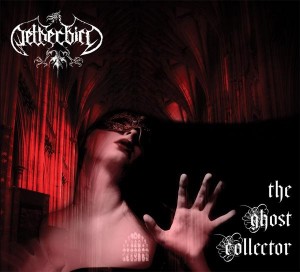Mean Deviation is an amazing compendium of everything weird in the world of metal—a book as grand and unlikely as the music it documents. Jeff Wagner, former Metal Maniacs editor and all-round musical guru, approaches the subject with good humour and a wisdom gleaned from decades of serious metal geekery. When he notes that Death put out 25 demo tapes leading up to their debut album, you suspect he’s got them all stashed in a shoebox, probably in chronological order. Whether you figure prog metal begins and ends with Dream Theater, or whether you started taking math lessons from the Dillinger Escape Plan’s Calculating Infinity, prepare for a schooling from Mr. Wagner.
Wrangling a discussion of such a diverse genre into some semblance of order would have stopped most writers at the first draft stage, but Wagner had the zeal to sort it all out. It’s more or less a chronological journey, starting with an overview of progressive rock’s dark leanings and early kinship with heavy metal, then turning to that key moment in metal history when Black Sabbath brought in Rick Wakeman for Sabbath Bloody Sabbath (“arguably the first progressive metal album” says Wagner). From there, he covers the indelibly influential Rush, then pinpoints the prog-rock influences found in Iron Maiden, Mercyful Fate, Metallica, and Megadeth before arriving at the meat of the prog-metal matter with the big three: Queensrÿche, Fates Warning and Dream Theater.
The book then caroms from band to band, organizing them into clusters from certain eras and scenes—avant-thrashers Voivod and Celtic Frost, Florida’s Death/Atheist/Cynic triumvirate, Swedish Death Metal, and Norwegian weirdoes Arcturus, Solefald, Ulver and In the Woods. Wagner’s admirably inclusive approach ensures they all get their due.
If anything’s lacking, it’s a narrative thread—there’s no single story arc that we can follow through the book. The subject matter is too large and scattershot, I suppose. Instead we get dozens of short stories—bands forming, experimenting, making that artistic breakthrough, and then either succumbing to commerciality or disbanding due to industry confusion or indifference. In the absence of a main human interest story, perhaps the hero of the book is the music itself, as it struggled for acceptance during metal’s ascent in the 1980s, reached an artistic apex in the underground circa 1993, and eventually found a sizable niche in the anything-goes musical climate of today. If anything, that’s the story secreted within Mean Deviation’s 350-plus pages.
During its survey of bands, albums and trends, the book touches on several worthwhile issues, including the nature of progressive music itself. Is “progressive” a formula—long songs, complex time signatures, ambitious concepts— to be slavishly replicated by band after band striving for progressive “authenticity,” or does “progressive” mean actual musical progress over the course of a band’s existence, a series of courageous artistic leaps that may even include embracing a somewhat commercial approach? Wagner, it’s clear, favours the brave ones, and forgives the occasional misstep if it leads to something interesting, as exemplified by his enthusiasm for Voivod’s Angel Rat.
Another interesting angle that the book follows is that of the record labels and the people who have championed and funded such precarious artistic ventures. In talking to Jim Pitulski of Inside Out, Ken Golden from Sensory/The Laser’s Edge, and Andreas Katsambas from The End Records, Wagner gives us a sense of who’s scouting the talent and catering to the demanding, diverse prog-metal audience. They all have interesting things to say about their own personal tastes and the nature of progressive metal itself, and I would have welcomed even more commentary from them, especially regarding Katsambas’s directing his label away from the metal scene.
As if we needed reminding that we live in the true north, prog and free, Canada is well represented in the book with coverage of Obliveon, DBC, Gorguts, Unexpect, Devin Townsend, along with the aforementioned Voivod and Rush. It’s superbly indexed, nicely illustrated, with sidebars featuring lists and assorted prog-metal curios.
Wagner has done us a great service by getting all the craziness down for posterity. If you were there when this music emerged, it’ll send you scuttling back to your record collection to rediscover the many classics lovingly described within. If you’re joining the prog-fest already in progress, let this book be your guide. A world of wonders awaits.
(Bazillion Points)


